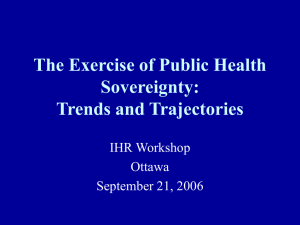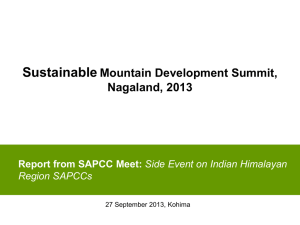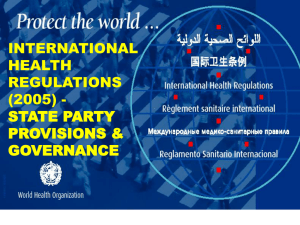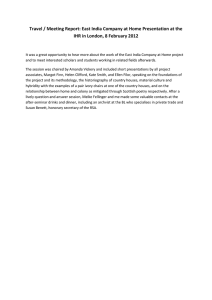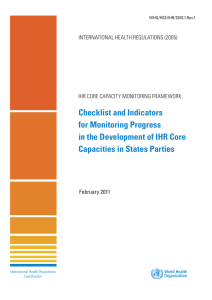Ottawa IHR Workshop: Summary Comments Kumanan Wilson
advertisement
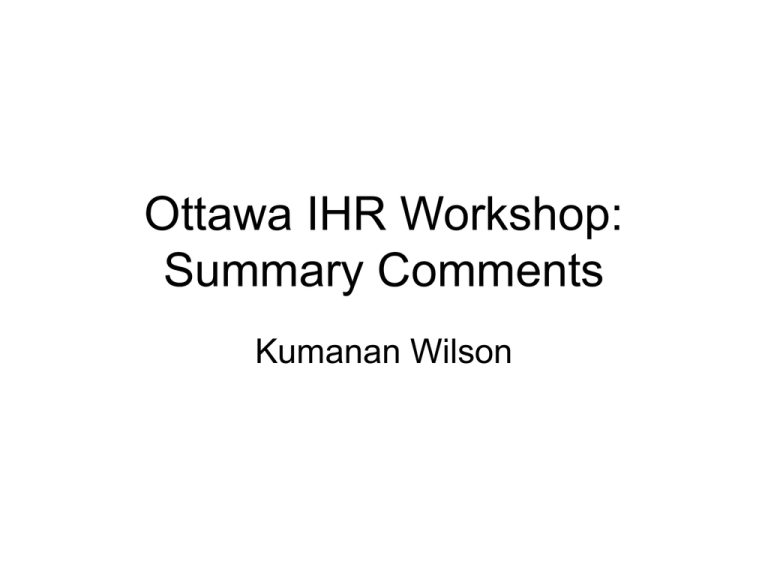
Ottawa IHR Workshop: Summary Comments Kumanan Wilson Emerging Themes 1. A recognition of the importance of the IHR (2005) to managing public health emergencies 2. A recognition of the challenges the IHR poses, particularly to decentralized states, and those with limited resources 3. An understanding that the effective implementation of the IHR involves a necessary combination of both governance and capacity 4. An understanding that the changes to public health governance occurring in many countries have been influenced not only by the IHR but also by many other processes Emerging Themes, cont’d 5. A recognition that every nation is unique – Have unique governance systems, histories and experiences 6. An understanding of the importance of the sovereignty of regional governments within states 7. A recognition of the importance of public health collaboration and maintaining effective working relationships between orders of government Decentralization vs. centralization of public health governance • Both options have inherent tensions • The IHR and other international events are imposing greater centralization • Different instruments to achieve centralization: – Public health legislation, parallel legislation,funding, intergovernmental agreements. • Need to identify the combination of instruments that will maximize the benefits of centralization while mitigating its disadvantages Key questions for future research • For what core capacities is it worth considering moving to more centralized approaches? • If states can adopt centralized approaches, how to manage the impact of the top-down structure? – On relationships, on ensuring capacity, on regional government jurisdiction/sovereignty • If states cannot adopt centralized approaches, what alternatives can be used to ensure regional (and thus national) compliance with IHR?
